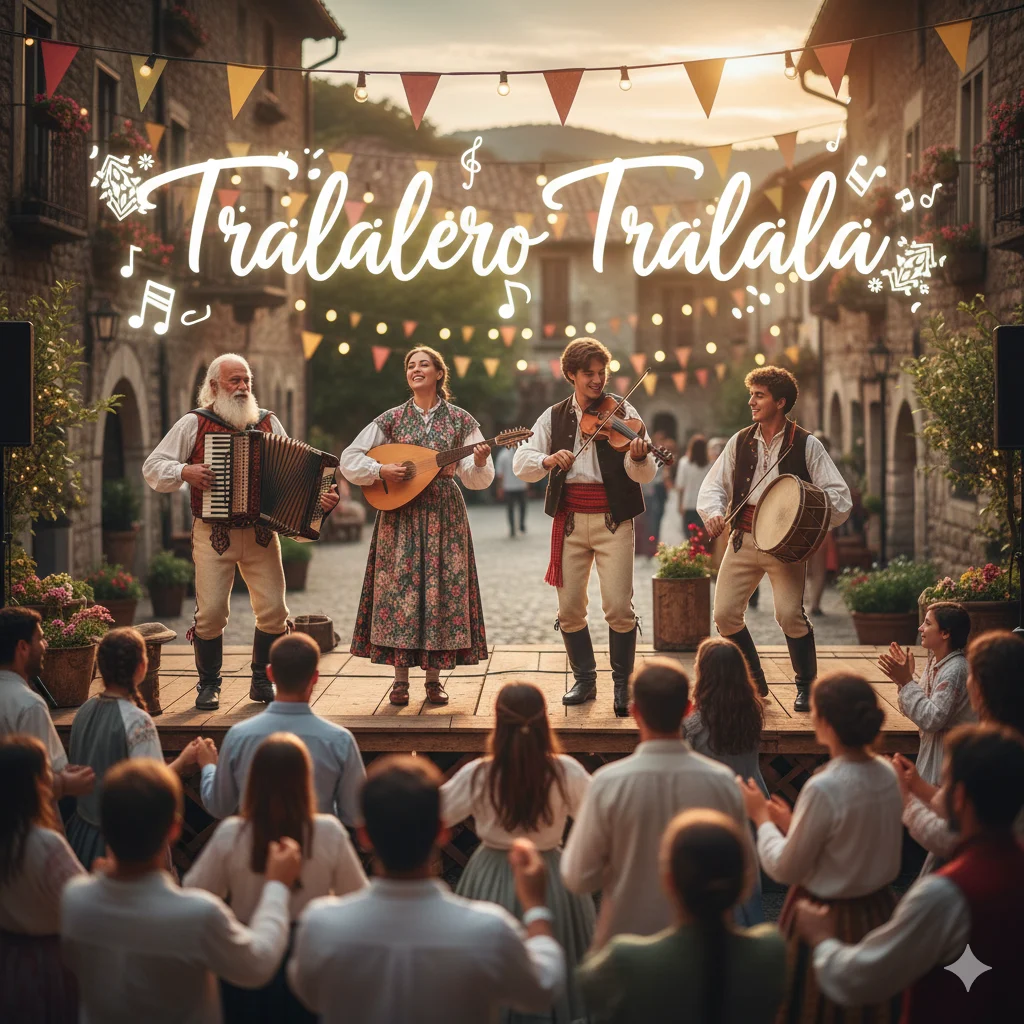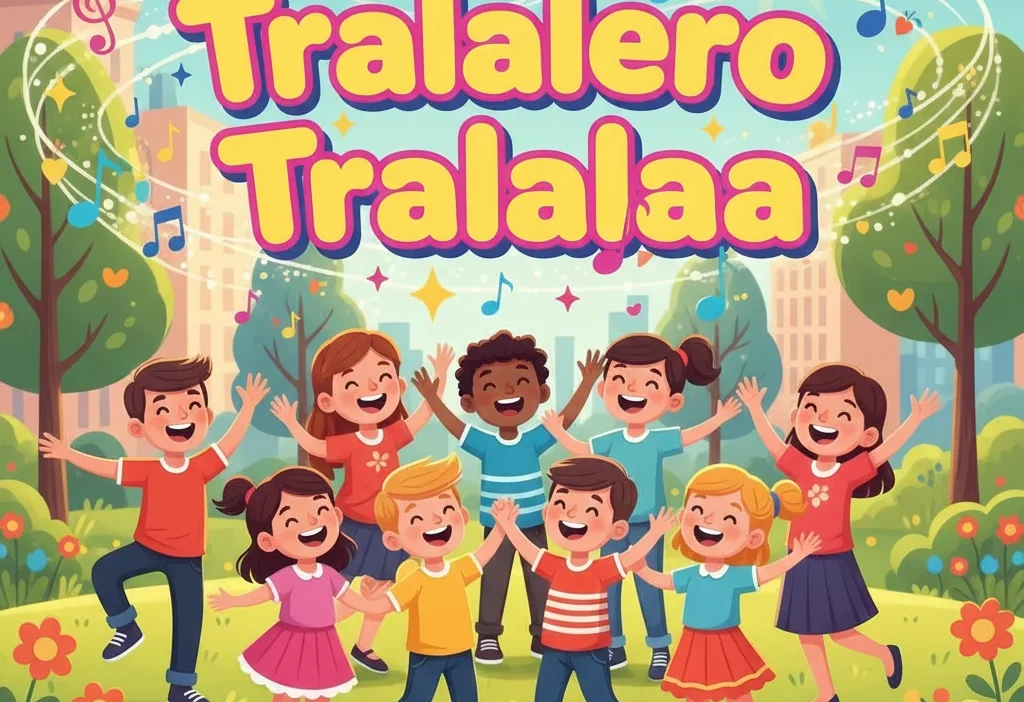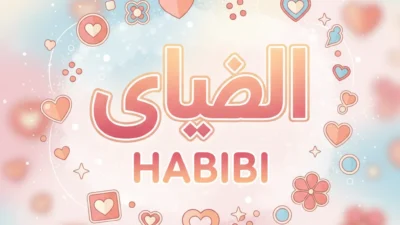“Tralalero tralala” is an expression used in songs and everyday speech to convey a sense of fun, playfulness, or nonsensical melody.
It does not have a literal meaning but is often used as a musical filler or chant to create rhythm, joy, or catchy repetition in lyrics.
This phrase appears in children’s songs, folk music, memes, and playful lyrics, making it a part of both music culture and internet slang. Understanding it requires looking at its musical origins, cultural context, and how it’s used today online and offline.
Musical Meaning of Tralalero Tralala
Use in Songs
- “Tralalero tralala” is commonly a lyrical filler.
- It helps singers maintain rhythm, melody, and engagement in choruses or verses.
- Often used in children’s songs, folk tunes, and pop songs.
Example:
- A nursery rhyme might go: “We skip and jump, tralalero tralala!”
- Here, it’s meant to sound fun and cheerful rather than convey a literal message.
Origin of Musical Fillers
- Fillers like “tralalero tralala” are part of a long tradition in music.
- They are similar to nonsense lyrics like “la la la,” “dum dee dum,” or “fa la la.”
- Such phrases are designed to:
- Make songs catchy
- Engage audiences
- Add rhythm and melody

Cultural and Linguistic Context
Folk and Traditional Music
- In many cultures, nonsense syllables appear in folk music and work songs.
- In Spanish, Italian, and Latin American songs, phrases like “tralalero tralala” are common.
- They help:
- Maintain tempo
- Add festive sound
- Encourage audience participation
Popular Music Usage
- Modern pop songs sometimes include similar fillers to create earworms, memorable parts of songs.
- Example: Songs by bands like Little Big, European pop artists, or Disney songs often include “tralalero” style phrasing.

Tralalero Tralala in Internet Culture
Memes and Social Media
- The phrase is often used in TikTok videos, Instagram Reels, and YouTube shorts.
- Typically to convey:
- Playfulness
- Whimsy
- Lighthearted humor
Example:
- A video of someone dancing with caption: “Monday mood: tralalero tralala 😂”
Viral Challenges
- Some viral videos incorporate the chant as a background or audio track.
- Internet users remix “tralalero tralala” in audio memes, animations, or comedic content.

Table: Usage of Tralalero Tralala Online
| Platform | Usage Context | Example |
|---|---|---|
| TikTok | Background audio for dances | “Tralalero tralala challenge” |
| Reel captions | “Feeling tralalero tralala today” | |
| YouTube Shorts | Musical meme content | Compilation of funny songs |
| Reaction tweets | “Me entering the weekend: tralalero tralala 😂” |
How to Use Tralalero Tralala in Conversation
As a Fun Expression
- “Tralalero tralala” can be said aloud to:
- Express happiness
- Lighten the mood
- Add rhythm to speech
Example Sentences:
- “We danced all night, tralalero tralala!”
- “I’m skipping work today, tralalero tralala!”
As a Musical Element
- Songwriters can insert it to:
- Create catchy hooks
- Fill silent beats in a melody
- Engage listeners in sing-alongs
Related Nonsense Lyrics and Fillers
Table: Similar Musical Phrases
| Phrase | Meaning/Use | Example |
|---|---|---|
| La la la | Nonsense melodic filler | Pop song chorus |
| Fa la la | Traditional folk or Christmas | “Deck the Halls, fa la la la la” |
| Dum dee dum | Musical filler for rhythm | Jazz or swing tunes |
| Tra la la | Playful or child-friendly chant | Nursery rhymes |
| Tralalero tralala | Fun, rhythmic chant | Folk or internet songs |
Psychological and Social Aspect
Fun and Playfulness
- Saying or singing “tralalero tralala” triggers positive emotions, similar to laughter or playful noises.
Memory and Engagement
- Repetition of catchy phrases helps listeners remember songs better.
- Often used in child development songs, early education, and sing-alongs.
Cultural Connection
- Participatory phrases like “tralalero tralala” encourage group singing and create a sense of unity.
Common Misunderstandings About Tralalero Tralala
Literal Meaning
- People sometimes try to find a literal meaning.
- Fact: It’s nonsense syllables, not a word in any language.
Use in Formal Music
- Rare in classical or serious musical compositions.
- Mostly restricted to:
- Children’s music
- Pop and folk songs
- Internet memes
Confusion With Other Slang
- Not related to acronyms, texting slang, or internet abbreviations.
- Completely musical and playful in origin.
Global Influence of Tralalero Tralala
European Folk Traditions
- Similar phrases exist in Italian, Spanish, and French folk songs.
- Often sung in festivals, celebrations, and communal dances.
Children’s Media Worldwide
- Nursery rhymes and kids’ songs frequently include nonsensical chants like “tralalero tralala” for learning rhythm and language.
Table: Tralalero-like Phrases Worldwide
| Country/Language | Phrase | Use |
|---|---|---|
| Spain | Tralalero tralala | Folk songs, children’s songs |
| Italy | Tra la la | Traditional folk and nursery rhymes |
| UK | La la la | Pop and children’s songs |
| USA | Fa la la, la la la | Christmas carols and pop music |
| Japan | La la la | Anime and pop culture music |
Tralalero Tralala in Modern Pop Culture
Music
- Pop songs, viral tracks, and dance videos often incorporate the phrase.
TikTok Challenges
- Users create short, repetitive clips with “tralalero tralala” as background audio.
Meme Culture
- Used to express:
- Humor
- Nonsense joy
- Playfulness
Example:
- Video caption: “Mondays got me like tralalero tralala 🤪”
How to Incorporate Tralalero Tralala in Content
In Social Media Posts
- Use as a playful caption.
- Pair with fun emojis 🎶😂💃
In Songs
- Fill in pauses or create memorable hooks.
- Easy for audience sing-along.
In Everyday Speech
- Add rhythm and playfulness to casual conversation.
- Great for kids, teachers, or playful adults.
Conclusion
Tralalero tralala is a playful, nonsensical phrase used in songs, memes, and everyday speech to convey fun, rhythm, and joy.
It has no literal meaning but serves as a musical filler, chant, or meme element, making it memorable and widely usable in pop culture, folk music, children’s songs, and social media.
Whether singing, dancing, or posting online, “tralalero tralala” evokes happiness, engagement, and playful creativity, showing the power of nonsense syllables in human communication and music.





